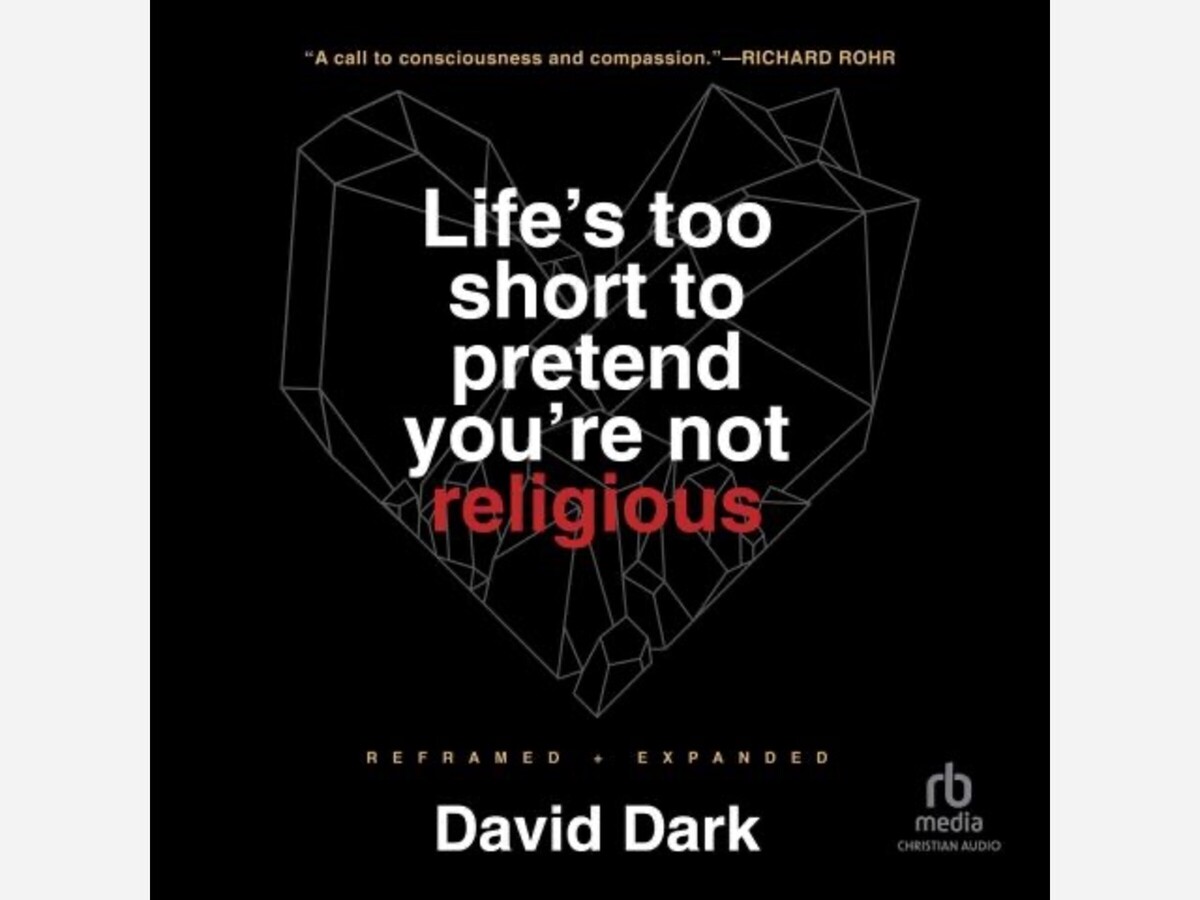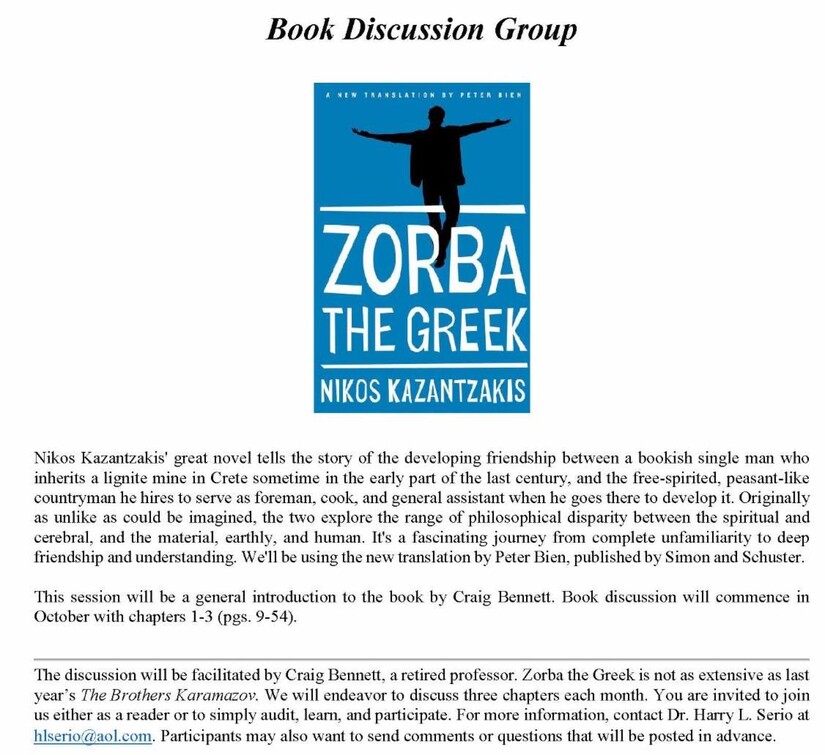Image


by Craig Bennett*
Like a great many people all over the Western world, I moved away from mainstream Christianity a long time ago. But I didn’t abandon religion completely. I simply figured that, since there were so very many religions all over the world, each of them different from any of the others (with a few exceptions, such as the Golden Rule), I ought to be able to put together my own, personal religion that would probably be as valid as any of those.
I found surprising comfort and reinforcement for such an idea in David Dark’s Life’s too short to pretend you’re not religious (sic). Like many other authors whose work had opened my eyes and my mind to all sorts of ideas I felt somewhat embarrassed for not having thought of myself, Dark offers a much broader and far less doctrinaire approach to the whole business of religion than I was accustomed to encountering. And there was much of his own experience with which I could identify.
Dark lays out what seems like the most accurate and comprehensive description of religion I’d ever run into. He explains, lucidly and often rather humorously, how and why our own, deeply personal religion encompasses literally everything we know, believe, and do. Everything that has ever left a lasting impression on us has contributed to it. Those things have become part of how we understand the world, how we make our moral and ethical decisions, and how we relate to the people around us. It is out of them that we have constructed our entire world view.
He provides examples of the kinds of things that have served that purpose in his own life: movies, song lyrics, comic books, novels, other people—and, to some extent, what he learned in church. He refers to these as his “attention collection.” I had to smile at Dark’s self-deprecating candor, but I related immediately to his observation. I realized that I could easily come up with an attention collection of my own that included a great many things that had nothing to do with church or organized religion. Yet, these things had a more profound effect on shaping who I am, what I believe, and how I live than anything I could think of that I had learned as a child in Sunday school.
These were things that, by and large, were connected to the real world—the world of my own time and my own American culture. Lessons about being faithful to God or kind to your fellow man, communicated through stories that supposedly happened two or three thousand years ago somewhere in the Middle East, were all well and good; but they hardly seemed so relevant as real experiences or real events that took place in the Western world in modern times. Even novels and poems written somewhere in Europe more than a century or two before seemed a lot easier to identify with than stories about the parting of the Red Sea, a virgin’s giving birth, or someone’s feeding a few thousand people with five loaves of bread and a couple of fish. And when one took into consideration the simple availability of movies, inexpensive editions of books of all sorts, and recorded songs with lyrics about nearly anything imaginable, it was easy to understand how these things could play a greater role in shaping the consciousness of the average American than whatever he might have been exposed to on Sunday mornings in church.
But it’s still a highly individual enterprise. If our real and genuine religion consists largely of our own value system as informed and derived from our individual attention collections, along with how we apply this to our daily lives, then it would hardly be uniform from person to person. Dark acknowledges the particular importance of story by explaining this difference in terms of what he calls our “controlling stories.” This is essentially what a religion is, Dark explains, and these stories are just as numerous and varied as the people to whom they belong. Furthermore, he adds, there are many different ways to be true to a story—and, consequently, many ways to be true to a religion. Although Dark seems to acknowledge that the idea of a controlling story can be applied to an entire culture as well as to an individual, he deals with the concept mostly as it applies to the latter. And our controlling story is intimately tied up with who we are. When we talk about religion as our controlling story, he says, we’re referring to whatever it is that we consider to be essential. And whatever we consider essential is foundational to who we really are.
Viewing the very idea of story thorough Dark’s rather novel (for me) way of understanding it, I came to realize how important it is to both human societies and human individuals. Our controlling story, which also constitutes our deeply personal religion, gives us a context in which to understand our lives. It connects us to a past that helps us to make some sense of the present. It connects us to other people, events, and institutions. It provides us with an understanding of where we belong and with whom we belong, and those two things alone account for a great deal of our personal identity.
-Craig H. Bennett, author of Nights on the Mountain and More Things in Heaven and Earth, available at amazon.com, barnesandnoble.com, and the Firefly bookstore, Kutztown, PA
***
* Craig Bennett is “on tap” with Dr. Harry L. Serio as part of Dr. Serio’s “Spiritual Exploration Project” on October 10, 2024, at 10: 30 a.m. in a joint discussion of David Dark's book "Life's too short to pretend you're not religious" (sic). The program will be held at St. John's United Church of Christ, 257 W. Walnut Street, Kutztown, PA. Dark is a member of the College of Theology faculty at Belmont University in Tennessee. Craig promises an interesting session of sharing, comparing notes, discovering commonalities, and gaining insight into what really makes us tick on a day-to-day, hour-by-hour basis and asks, “So what's in YOUR attention collection?”
****
A book discussion group reading ZORBA THE GREEK will discuss the first three chapters beginning at 9:30 a.m., October 10, 2024, prior to the program mentioned above.

The “Spiritual Exploration Project” has provided both lecture programs and discussions on a variety of topics regularly for over 25 seasons.
Craig,
Great read. Thanks. I assume you have come into contact with Shetty's Live Like a Monk, which is not quite in the same vein as this essay, but which has some of the enthusiasm for revelation in it, I think. I also suspect you have bumped into Joseph Campbell's many treatises of this topic, but especially The Power of Myth from the 70s or 80s.
Thanks. I tend toward the more traditional, but I am probably less rigid and constrained in my application of the 'rules.'